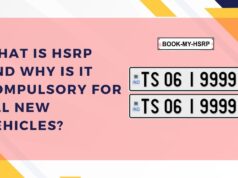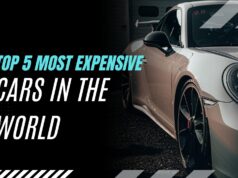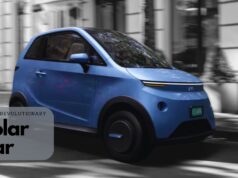Purchasing a car is a significant milestone, and the choice between a new car and a used car is one of the most important decisions you’ll face. Each option has its own set of advantages and disadvantages, which can influence your financial situation, lifestyle, and satisfaction. When considering New vs Used Car options, this guide compares the benefits and drawbacks of buying new versus used cars, while also addressing key questions to consider.
New vs Used Car: Key Considerations
Deciding between a new or used car requires a clear understanding of what each option entails. While new cars offer cutting-edge features and reliability, used cars are more budget-friendly and often come with slower depreciation. Let’s delve deeper into the advantages and drawbacks of both options.
The Advantages of Buying a Brand-New Car
Opting for a new car has its unique appeal, especially for those seeking a seamless ownership experience. Some key advantages include:
- Warranty and Peace of Mind: New cars come with manufacturer warranties, providing coverage for repairs and reducing unexpected expenses.
- Latest Technology and Features: From advanced safety systems to modern infotainment setups, new cars boast the newest innovations.
- Pristine Condition: A new car guarantees an untouched vehicle with no wear and tear, ensuring peak performance.
- Attractive Financing Options: Many dealerships offer promotional financing rates and incentives for new vehicles.
- Customization Options: You can choose the exact model, color, and features to suit your preferences.
The Disadvantages of Buying a New Car
While new cars offer several benefits, they also come with some limitations. These include:
- Rapid Depreciation: A new car’s value drops significantly as soon as it leaves the dealership, with steep depreciation in the first few years.
- Higher Price Tag: The upfront cost of a new car is considerably higher than that of a used car.
- Increased Insurance Costs: Insuring a new car is often more expensive due to its higher value.
The Advantages of Buying a Used Car
For budget-conscious buyers, used cars offer several compelling benefits. Here’s why they might be the better choice:
Affordability: Used cars are significantly cheaper than new cars, making them more accessible.
Reduced Depreciation: Since used cars have already experienced the steepest depreciation, their value tends to hold more steadily over time.
Lower Insurance Premiums: Insuring a used car is generally less expensive, as its replacement cost is lower.
Variety of Choices: The pre-owned market offers a wide range of models, including discontinued options that might suit your needs.
The Disadvantages of Buying a Used Car
While used cars can save you money, there are some trade-offs to keep in mind. These include:
- Potential Repair Costs: Depending on the vehicle’s age and mileage, repairs and maintenance may be more frequent.
- Limited or No Warranty: Unless it’s a certified pre-owned vehicle, used cars may not include warranty coverage.
- Uncertain History: Without a thorough inspection or vehicle history report, hidden issues could arise later.
- Fewer Customization Options: With used cars, you’ll need to choose from what’s available rather than customizing your purchase.
Choosing Between a New Car and a Used Car
Ultimately, the decision depends on your priorities, budget, and lifestyle. If you value the assurance of a warranty, cutting-edge features, and a flawless vehicle, a new car is a great option. However, if affordability, slower depreciation, and lower insurance costs are more important to you, a used car might be the better fit.
What Makes a New Car Less Desirable?
The most notable disadvantage of buying a new car is the rapid depreciation. Within the first year, a new vehicle can lose a significant percentage of its value, making it a less attractive option if you plan to sell or trade it in later.
Essential Questions to Ask When Buying a Used Car
Before purchasing a used vehicle, it’s crucial to ask the right questions to ensure you’re making a wise investment. Here are some must-ask questions for the dealer:
- What is the car’s history? Learn about previous ownership, accident history, and maintenance records.
- Is it certified pre-owned? Determine if the vehicle has been inspected and comes with warranty coverage.
- Can I review the vehicle history report? Request reports from reliable services like Carfax or AutoCheck.
- Has the car been in any accidents? Confirm whether the vehicle has a clean accident record.
- Are there any unresolved recalls? Ensure all recall issues have been addressed.
- What is the condition of key components? Ask about the state of the tires, brakes, and battery.
Final Thoughts: New vs Used Car – What’s Right for You?
Choosing between a new car and a used car boils down to your personal preferences and financial goals. A new car offers modern features, a warranty, and peace of mind but comes with higher costs and faster depreciation. On the other hand, a used car provides affordability, slower depreciation, and lower insurance premiums but may involve additional maintenance and limited warranties. By evaluating your priorities and asking the right questions, you can make a confident, informed decision that aligns with your needs.
For more insights and expert tips, stay tuned to the latest updates in automotive buying trends.















